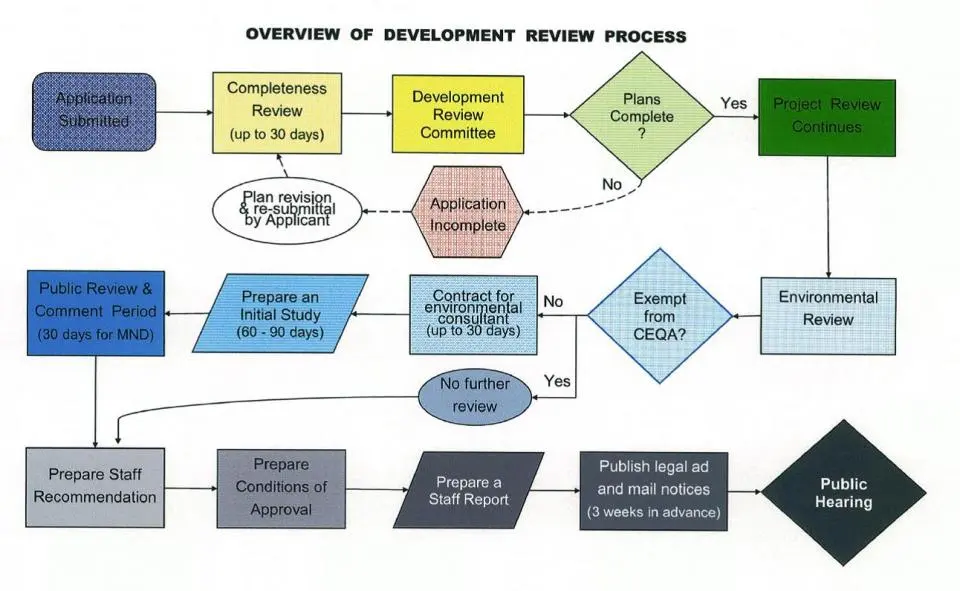In the intricate world of real estate development, the term “entitlements” holds significant weight. But what exactly are entitlements, and why are they crucial to grasp for anyone involved in real estate ventures?
What is Entitlements Real Estate Definition?
Entitlements, in the realm of real estate, refer to the legal rights granted by governmental bodies to developers, allowing them to undertake specific projects within certain parameters. These rights typically encompass land use, zoning, density, and other regulatory aspects that dictate what can be built and where.
Importance of Understanding Entitlements
Understanding entitlements is paramount for anyone involved in real estate development, from seasoned developers to novice investors. Without a comprehensive grasp of entitlements, navigating the complex landscape of real estate projects becomes significantly more challenging, if not impossible. It can mean the difference between a successful venture and one mired in legal and regulatory obstacles.
Understanding Entitlements
Entitlements, at their core, delineate what a property owner can and cannot do with their land. They establish the permissible uses, density, height restrictions, setbacks, and other parameters that govern development.
Legal Framework
Entitlements are rooted in a web of laws, regulations, and zoning ordinances established by local, state, and federal governments. These regulations vary widely depending on jurisdiction and can significantly impact the development process.
Types of Entitlements
Entitlements come in various forms, ranging from rezoning requests and conditional use permits to subdivision approvals and environmental clearances. Each type serves a distinct purpose in facilitating different aspects of the development process.
Key Players Involved
Here are a few key players involved in entitlements real estate.
What are Entitlements Real Estate Development?
Developers are the driving force behind real estate projects and play a central role in obtaining entitlements. They are responsible for navigating the complex regulatory landscape, securing necessary approvals, and overseeing the implementation of entitlements.

Government Agencies
Government agencies, including planning departments, zoning boards, environmental agencies, and city councils, are tasked with reviewing and approving entitlement applications. Their decisions shape the trajectory of development projects and ensure compliance with relevant regulations.
Community Stakeholders
Communities play a vital role in the entitlement process, providing valuable input and feedback on proposed developments. Engaging with community stakeholders early and transparently can help garner support and address concerns proactively.
What is a Real Estate Entitlement & Permitting Process?
Learn the real estate entitlement and permitting process step by step below
Feasibility Studies
Before embarking on a development project, developers conduct feasibility studies to assess the viability of their plans. These studies evaluate factors such as market demand, site suitability, financial projections, and regulatory constraints.
Site Selection and Due Diligence
Selecting the right site is critical to the success of a real estate project. Developers conduct thorough due diligence to evaluate factors such as zoning restrictions, environmental considerations, infrastructure availability, and market dynamics.
Initial Project Planning
During the initial planning phase, developers conceptualize their projects and outline their vision. This involves determining project goals, defining scope and objectives, and identifying potential challenges and opportunities.
Entitlement Process Flow Chart
The chart which helps you to understand the entitlement real estate process

Entitlement Application
Documentation Requirements
Entitlement applications typically require a comprehensive set of documents, including site plans, architectural drawings, environmental assessments, and traffic studies. These documents provide the necessary information for regulatory agencies to evaluate the proposed project.
Permitting Procedures
Navigating the permitting process can be complex and time-consuming, involving multiple layers of review and approval. Developers must adhere to specific procedures and deadlines to ensure timely processing of their applications.
Public Hearings and Community Input
Public hearings provide an opportunity for community members to voice their opinions and concerns regarding proposed developments. Developers must engage with stakeholders and address any feedback or objections raised during these hearings.
Approval Process
Review and Analysis
Government agencies conduct thorough reviews of entitlement applications to ensure compliance with applicable laws and regulations. This may involve environmental assessments, traffic impact studies, and other analyses to evaluate the potential impacts of the proposed project.
Conditions and Mitigations
Approval of entitlements often comes with conditions and mitigations aimed at addressing potential negative impacts and ensuring compliance with regulatory requirements. Developers must negotiate these conditions and incorporate them into their project plans.
Appeals and Disputes
In some cases, entitlement decisions may be challenged through appeals or legal proceedings. Developers must be prepared to defend their projects and navigate potential disputes to secure approval for their developments.
Factors Influencing Entitlements
Zoning Regulations
Understanding Zoning Codes
Zoning codes dictate how land can be used and developed within a given jurisdiction. Understanding these codes is essential for developers to determine what types of projects are permissible in specific areas.
Zoning Variances and Amendments
In certain cases, developers may seek variances or amendments to zoning regulations to accommodate their projects. This may involve demonstrating unique circumstances or public benefits that justify deviating from existing zoning requirements.
Environmental Considerations
Environmental Impact Reports
Development projects are subject to environmental review to assess their potential impacts on natural resources, ecosystems, and public health. Environmental impact reports evaluate factors such as air and water quality, wildlife habitat, and cultural resources.
Mitigation Measures
To mitigate potential environmental impacts, developers may be required to implement mitigation measures such as habitat restoration, pollution controls, or stormwater management systems. These measures aim to minimize harm to the environment and surrounding communities.

Community Engagement
Public Relations Strategies
Effective communication and community engagement are essential components of the entitlement process. Developers must employ public relations strategies to build trust, address concerns, and foster positive relationships with stakeholders.
Addressing Concerns and Opposition
Community opposition can pose significant challenges to development projects, ranging from concerns about traffic congestion and noise pollution to broader issues of gentrification and displacement. Developers must listen to community feedback and work collaboratively to address concerns and find mutually beneficial solutions.
Challenges and Risks
Regulatory Hurdles
Changing Policies and Regulations
The regulatory landscape for real estate development is constantly evolving, with changes in zoning laws, environmental regulations, and building codes. Developers must stay abreast of these changes and adapt their strategies accordingly to mitigate risks and capitalize on opportunities.
The entitlement process often involves navigating complex bureaucratic structures and bureaucratic red tape. Developers must be prepared to invest time and resources in navigating regulatory hurdles and securing necessary approvals.
Community Opposition
NIMBYism (Not In My Backyard)
NIMBYism refers to the phenomenon of local opposition to development projects, often driven by concerns about property values, quality of life, and neighborhood character. Overcoming NIMBY opposition requires effective communication, community engagement, and addressing misconceptions about the project.
Balancing Community Interests
Developers must strike a delicate balance between their project objectives and the interests of the surrounding community. This may involve making concessions, incorporating community feedback, and finding creative solutions to address concerns while still achieving project goals.
Financial Implications
Cost Overruns
Real estate development projects are inherently risky endeavors, with the potential for cost overruns due to factors such as construction delays, regulatory changes, and unforeseen challenges. Developers must carefully manage budgets and contingency plans to mitigate financial risks.
Delays in Project Timelines
Delays in the entitlement process can have significant financial implications, resulting in increased carrying costs, lost revenue opportunities, and strained relationships with investors and stakeholders. Developers must proactively address potential delays and work to expedite the approval process.
Strategies for Successful Entitlements

Early Engagement and Communication
Building Relationships with Stakeholders
Developers should prioritize early engagement with stakeholders, including residents, community groups, and government officials. By establishing open lines of communication and building trust from the outset, developers can foster a collaborative environment and address concerns before they escalate.
Transparent Communication Channels
Transparency is key to successful entitlements. Developers should provide clear and accurate information about their projects, including potential impacts and benefits. Utilizing various communication channels such as public meetings, newsletters, and project websites can help ensure stakeholders are informed and engaged throughout the process.
Comprehensive Planning
Thorough Due Diligence
Before submitting entitlement applications, developers must conduct thorough due diligence to assess the feasibility and potential risks of their projects. This includes conducting market studies, environmental assessments, and financial analyses to identify potential challenges and opportunities.
Proactive Issue Resolution
Anticipating potential issues and proactively addressing them can help streamline the entitlement process. Developers should identify potential concerns raised by stakeholders and regulatory agencies and develop mitigation strategies to address them effectively.
Professional Expertise
Legal Counsel
Navigating the legal complexities of the entitlement process requires expertise in land use law, environmental regulations, and administrative procedures. Developers should work closely with experienced legal counsel who can provide guidance and advocacy throughout the entitlement process.
Environmental Consultants
Environmental considerations are a critical aspect of real estate development. Developers should enlist the services of environmental consultants to assess potential impacts, conduct environmental studies, and develop mitigation measures to minimize harm to natural resources.
Community Relations Specialists
Effective community engagement requires specialized expertise in communication, conflict resolution, and stakeholder management. Developers should consider hiring community relations specialists who can facilitate meaningful dialogue, address concerns, and build consensus among stakeholders.
Case Studies
Successful Entitlement Projects
Highlighting Best Practices
Examining successful entitlement projects can provide valuable insights into effective strategies and best practices. Case studies showcasing projects that successfully navigated the entitlement process can offer valuable lessons learned and inspiration for future developments.
Lessons Learned
Analyzing past successes can help developers identify common pitfalls to avoid and strategies to replicate. Whether it’s building strong community partnerships, conducting thorough due diligence, or leveraging professional expertise, there are valuable lessons to be gleaned from successful entitlement projects.
Entitlement Challenges
Case Studies of Hurdles Faced
Real estate development is fraught with challenges, and entitlements are no exception. Case studies highlighting projects that encountered significant hurdles during the entitlement process can offer valuable lessons learned and insights into navigating obstacles effectively.
Strategies for Overcoming Obstacles
Despite facing challenges, many real estate projects ultimately succeed due to innovative strategies, persistence, and adaptability. By examining how developers overcame obstacles such as regulatory hurdles, community opposition, or financial constraints, valuable lessons can be learned for future entitlement endeavors.
People Mostly Asked Questions
What are the specific procedures and deadlines that developers need to adhere to during the permitting process?
Sure, here is a clearer version of the text:
Developers must follow specific procedures and deadlines during the permitting process:
1. Application Submission: Submit all required documents and forms by the designated deadline.
2. Initial Review: Wait for the permitting authority to assess completeness and compliance.
3. Technical Review: Allow time for detailed review by relevant departments or agencies.
4. Public Notification and Comment Period: Comply with notification requirements and accommodate the public comment period.
5. Decision and Approval: Await the permitting authority’s decision within the stipulated timeframe.
6. Appeals Process: If needed, file an appeal within the specified deadline to challenge decisions.
How do developers address community feedback and objections raised during public hearings in the entitlement process?
During public hearings, developers should address community feedback and objections by actively listening, engaging in open communication, addressing specific concerns with explanations or mitigation measures, seeking compromise and collaboration, highlighting community benefits, proposing mitigation measures, remaining adaptable, and maintaining continued engagement.
Conclusion
The Significance of Entitlements in Real Estate
Entitlements play a pivotal role in shaping the built environment and driving economic development. Understanding the complexities of the entitlement process is essential for developers, investors, and other stakeholders involved in real estate ventures.
Continuous Learning and Adaptation
The landscape of real estate entitlements is constantly evolving, with new regulations, market trends, and community dynamics shaping the process. Continuous learning and adaptation are essential for success in navigating the ever-changing terrain of real estate development.
Looking Towards Future Trends in Entitlements
As technology advances and societal priorities shift, the future of real estate entitlements is likely to see significant changes. From sustainable development practices to equitable community engagement strategies, staying ahead of emerging trends will be key to successfully securing entitlements for future projects.




